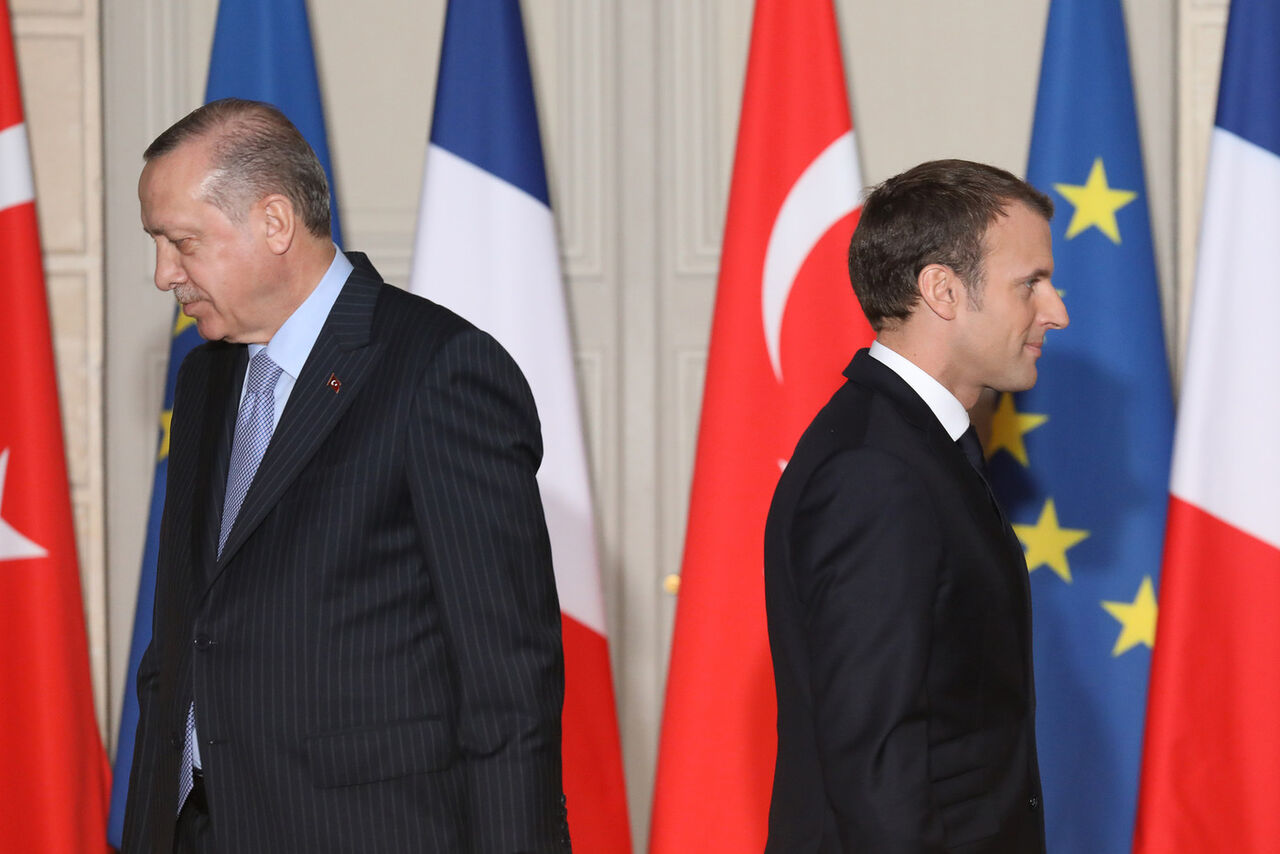Following recent remarks by Turkish President Recep Tayyip Erdogan against French President Emmanuel Macron, diplomatic tensions between the two countries escalated and the French Foreign Ministry recalled its ambassador from Ankara. Commenting recently over Macron’s support for the publication of blasphemous cartoons of the Holy Prophet (PBUH) in France, Erdogan referring to the French president said: What is the problem of a person named Macron with Islam and Muslims? Macron needs to be treated psychologically.
The recent Turkey-France tension is largely rooted in differences between the two countries over other issues. In fact, the dispute between Turkey and France is a geopolitical dispute, and therefore, in order to investigate the verbal dispute between Erdogan and Macron over the insult to the Holy Prophet (PBUH), the background of the differences between the two sides must be addressed. In this geopolitical rivalry, on the one hand, Turkey is increasing its power and trying to implement its neo-Ottoman policies, and on the other hand, these policies are in conflict with the interests of European powers, especially France. Therefore, the recent policies of the Turkish government towards Libya, Lebanon, Syria and Egypt and its tensions in the Mediterranean and the Caucasus have caused the sensitivity of Europe and France. Because Turkey is expanding its influence in areas, including the East Mediterranean, to which European powers, especially France, are sensitive. In fact, Turkey sometimes expands its influence to areas that were previously French spheres of influence.
At the same time, these Turkish measures have other consequences; first, it creates a rift within the EU; for although Turkey is not a member of the Union and is seeking membership in it, some European countries, with no or little interest in the Mediterranean, will not enter into a conflict with Turkey; because they have interests in the relationship with Turkey and do not seek to jeopardize those interests.
Also, Ankara’s policies within NATO will create a rift. Although Turkey is a member of NATO, with such measures it makes Europe and the US less capable of putting pressure on the country. There are several reasons for this; among other things, Turkey could increase its relations with Russia and buy weapons from Moscow, which would create a contradiction in NATO’s structure.
Therefore, it can be said that Turkey is like a bone in the throat of Europe, especially France, which can neither have a serious encounter with it nor put it aside. There are currently 5 million Turks living in Europe and they play an important role in the EU economy. Militarily, Turkey’s withdrawal from NATO will separate a major ground power from the organization.
Let’s not forget that Turkey’s strategy as a major regional power is to seek more revenue from the energy sector. Ankara knows it must have the energy to become a great power. It is true that energy pipelines run through the south, east and southeast of Turkey, but this is not enough and Turkey wants to have its own energy. As a result, Turkey travels to Libya and concludes an agreement with the Tripoli government, intervenes in the Karabakh war to cross the power line from Karabakh, and in the Mediterranean seeks oil and gas resources underwater. All these measures of Turkey have aroused the sensitivity of other countries such as France. In fact, because France itself is a political and military power alongside economic power and has influence in some areas, it has become more involved with Turkey, and the escalation of the verbal dispute between Erdogan and Macron today over the desecration of Macron to the Holy Prophet (PBUH) is also rooted in these issues.










0 Comments